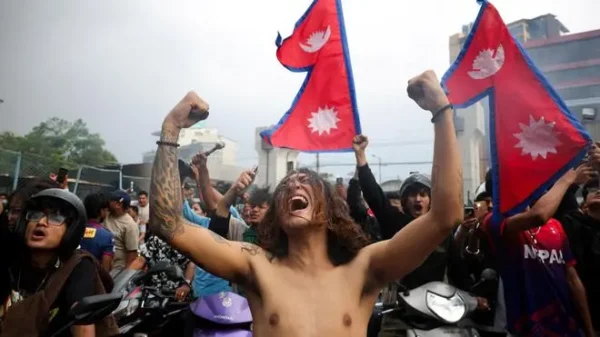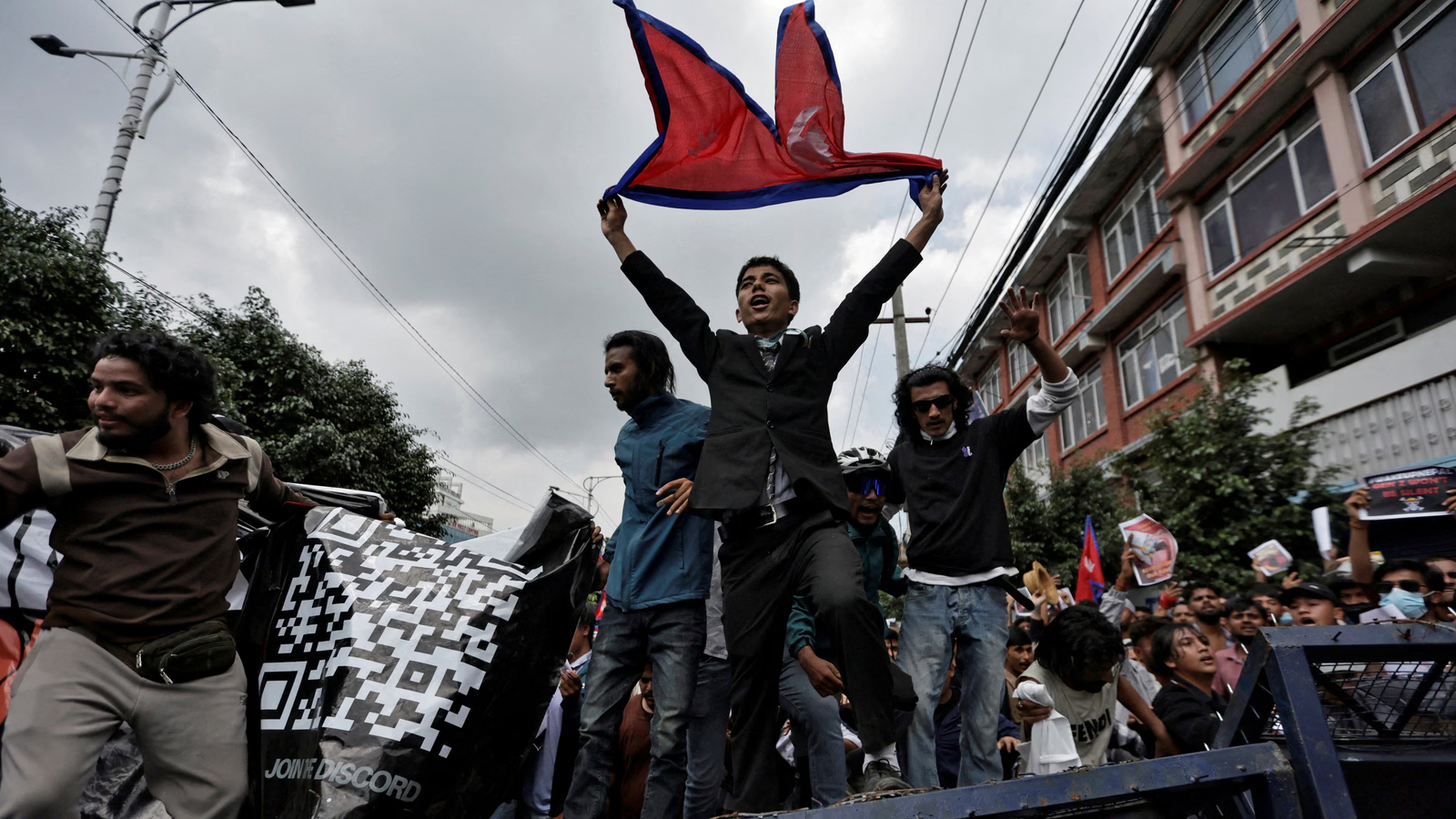Nepal faces turmoil as youth protests shake the nation. A social media ban sparked anger, the Prime Minister resigned, and a new interim leader took charge.

Nepal in Turmoil: Youth, Protests, and a Fight for Change
Nepal is standing at a crossroads. A country known for its mountains and calm spirit is now echoing with the chants of its youth. What started as a sudden social media ban has transformed into a powerful movement that has shaken politics, toppled a Prime Minister, and rewritten history.
The Spark That Shook a Nation
One night, the government pulled the plug on 26 social media platforms. Facebook, Instagram, YouTube, WhatsApp, X — all went dark. For the younger generation, these platforms were not just apps. They were lifelines. They connected them to jobs, education, and global conversations.
When those connections vanished, frustration boiled over. Students felt silenced. Workers felt cut off. Families felt censored. It wasn’t just about apps. It was about dignity, freedom, and the right to speak.
The Streets Speak Louder Than Silence
The next day, Kathmandu’s streets filled with young people. They carried posters, raised their voices, and demanded their rights. For many, it was their first protest. They were nervous, but also hopeful.
Then came the crackdown. Tear gas filled the air. Rubber bullets cut through crowds. Curfews were announced. Mothers cried as sons and daughters did not return home. The pain was heavy, but so was the determination.
Even in chaos, the youth stood strong. Their courage reminded the world that silence can never be forced. Just as Xi Jinping’s message to the world shows the power of influence, Nepal’s youth showed the power of resistance.
A Prime Minister Falls
The government thought the protests would fade. But the voices only grew louder. Soon, the pressure was too great. The social media ban was lifted, but the damage had already been done.
Prime Minister K. P. Sharma Oli resigned, unable to calm the storm. Parliament was dissolved. The nation braced for something it had not seen in years — a complete political reset.
And in that moment, history was made.
The First Woman to Lead
For the first time, Nepal swore in a woman as interim Prime Minister. Sushila Karki, once a Chief Justice, now carries the responsibility of guiding a wounded nation. She is strong, experienced, and determined. But the challenges ahead are enormous.
She must heal a nation that is bleeding. She must prepare the country for elections in March 2026. And above all, she must rebuild trust in leadership.
Nepal, like the U.S. and Venezuela sailing into danger, now stands in uncertain waters. Every decision will matter.
Beyond Apps and Bans
This crisis was never only about social media. It was about broken promises. About corruption and nepotism. About young people feeling ignored while leaders lived in comfort.
The protests turned into a cry for fairness. For jobs, for respect, for a chance at a better future. The youth made it clear — they will no longer wait quietly while others decide their fate.
To see how these global shifts connect with broader issues of governance and freedom, visit www.america112.com.
The Road Ahead
- Justice for the fallen: Families want answers for the lives lost.
- A fair election: March 2026 is more than a date; it is Nepal’s hope for a fresh start.
- Youth in politics: The generation that rose up will not return to silence. They will demand a seat at the table.
- Healing and unity: The scars are deep, but Nepal has always been resilient.
A Nation Reborn?
Nepal’s turmoil is painful, but it is also powerful. It shows how ordinary people can bring extraordinary change. From silence to slogans, from fear to courage, the streets of Nepal tell a story of hope.
And perhaps, when the elections arrive, the nation will finally step toward a future built not on broken promises, but on the voices of its people.

